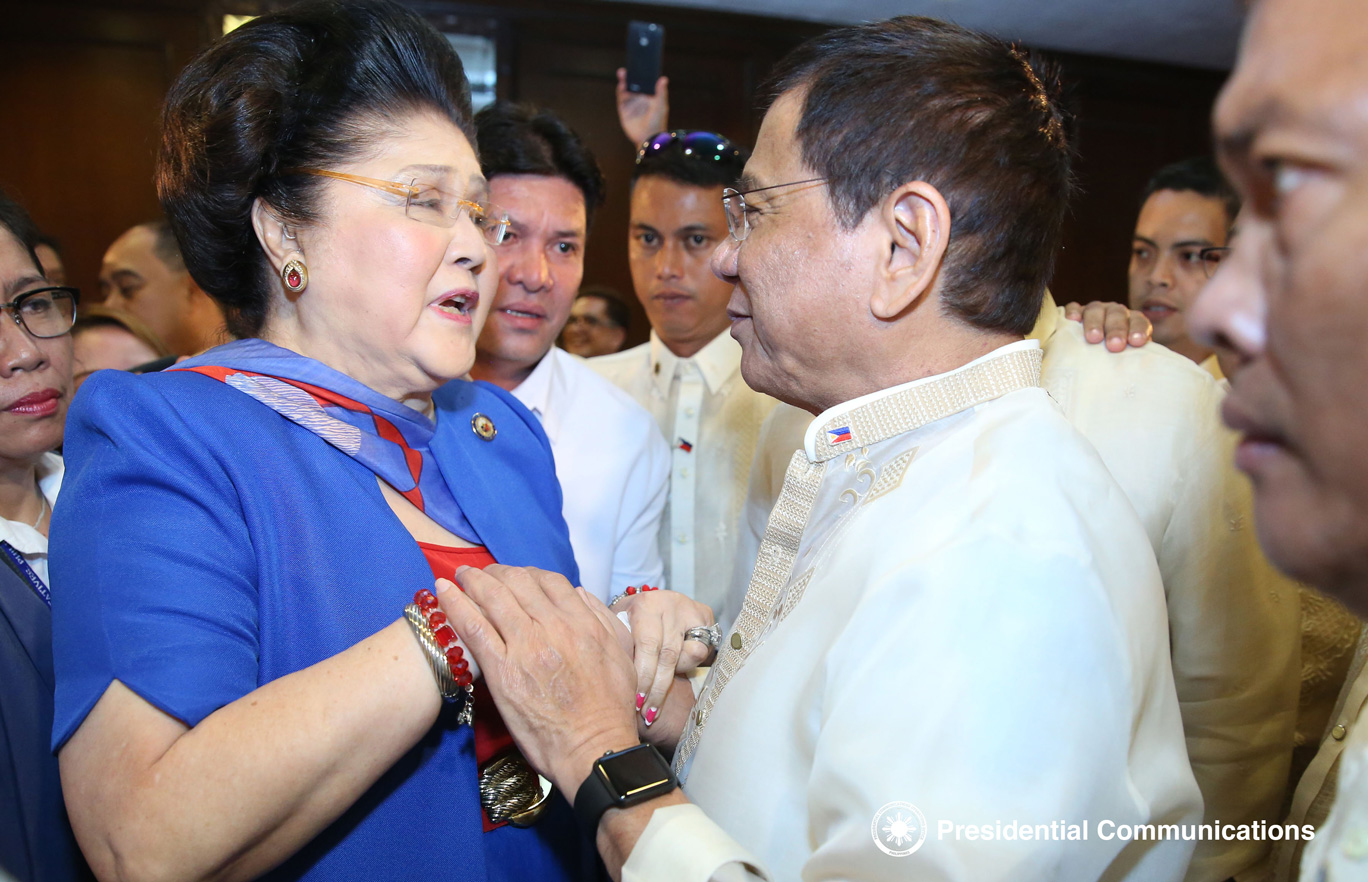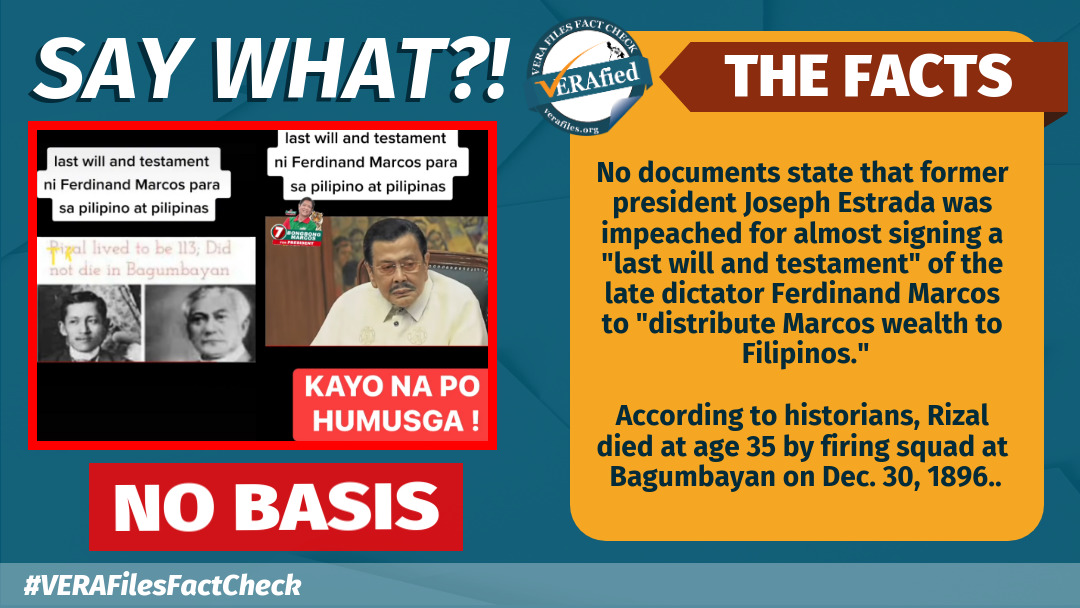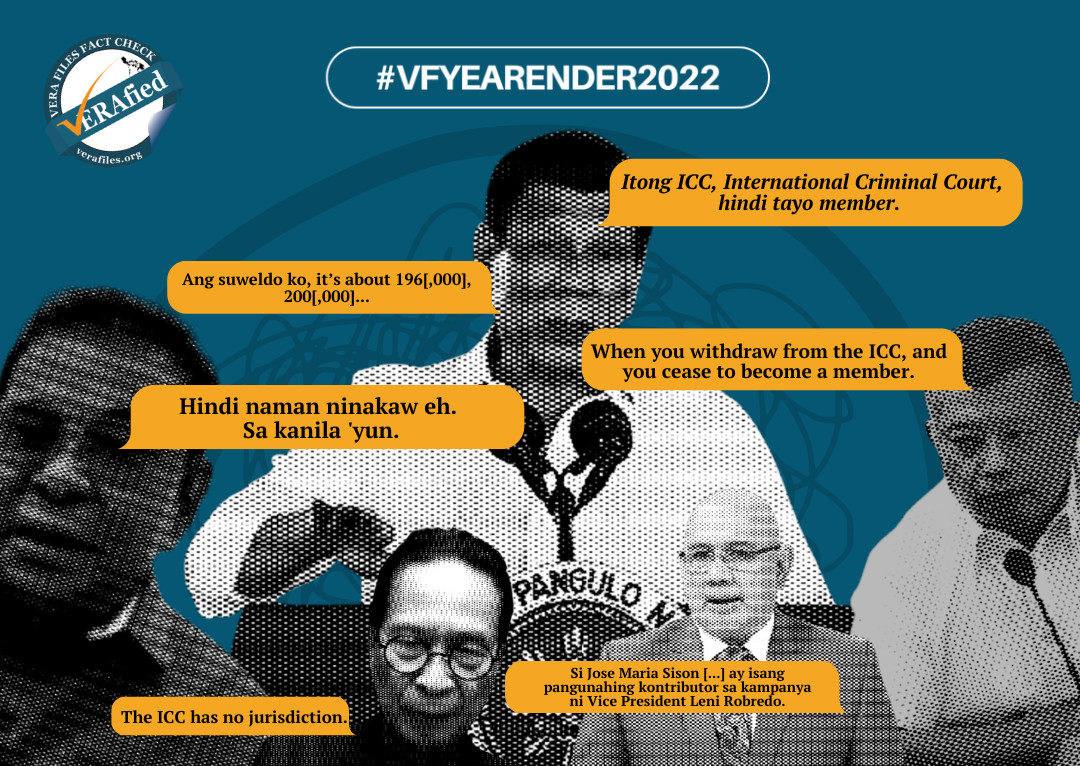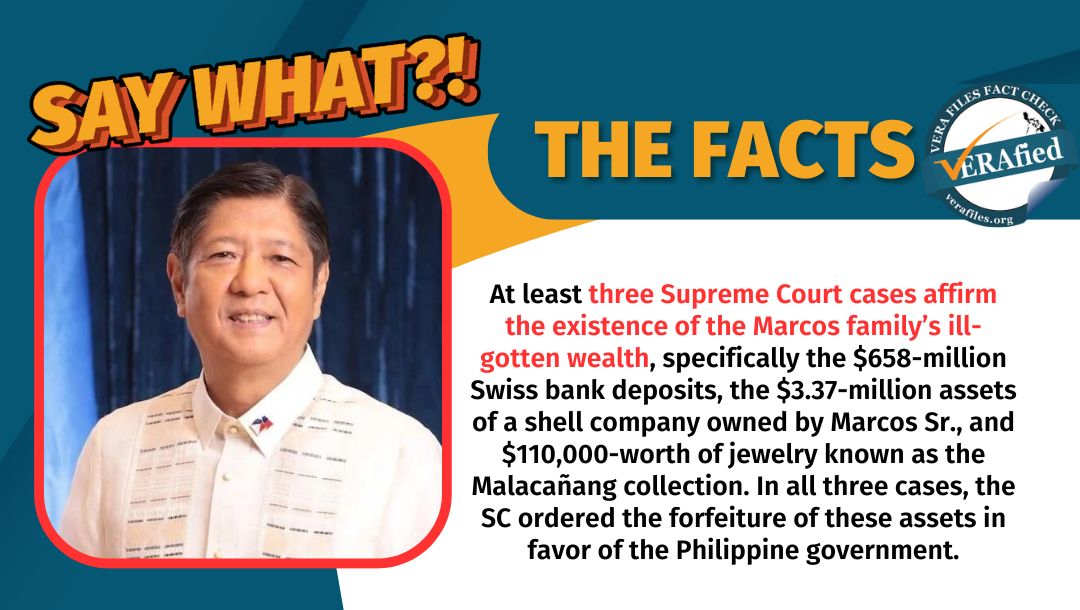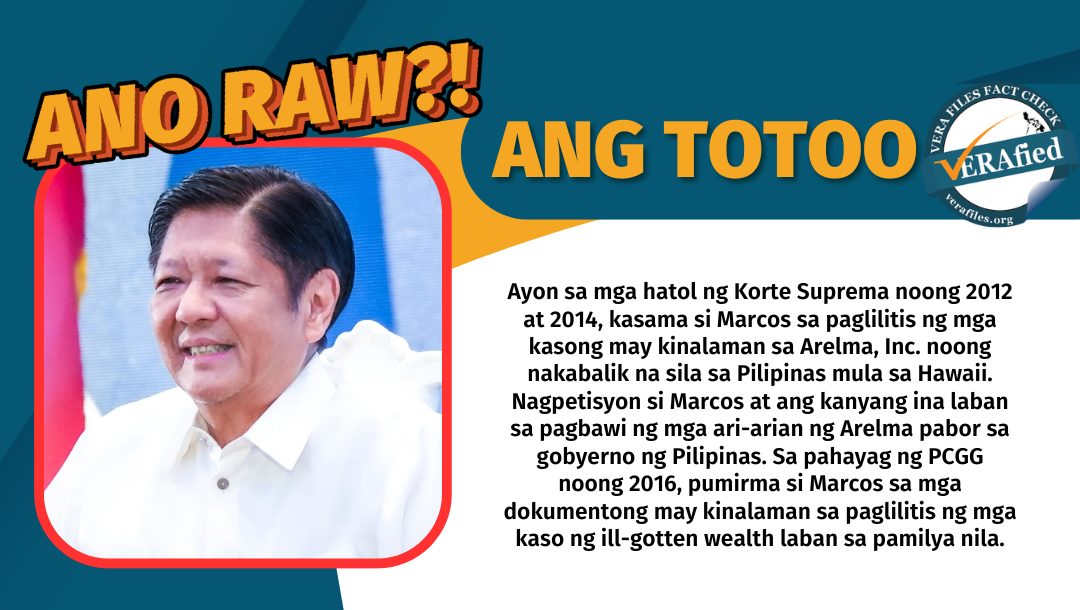Distancing himself from the government’s long standing effort to recover the alleged ill-gotten wealth of his family, President Ferdinand Marcos Jr. falsely claimed that he “has not touched” any of the cases filed against them after the 1986 EDSA People Power Revolution.
STATEMENT
In a presidential forum marking the Foreign Correspondents Association of the Philippines’ 50th anniversary on April 14, journalist Raissa Robles asked Marcos about his position on the government’s decades-long pursuit of his family’s alleged ill-gotten wealth.
Robles singled out the government’s ongoing recovery of the assets of the shell corporation Arelma, Inc., through which the late dictator Ferdinand Marcos Sr. supposedly hid $3.37-million (now worth $40 million). The assets are currently held in New York and would need a separate ruling by a state court before the assets can be released and turned over to the Philippine government.
Marcos, a co-administrator of the Marcos estate, replied:
“It’s hard for me to answer. You clearly know more about the case than I do. I really haven’t looked at it in years. I would advise you to talk to the lawyers that are handling it because I’m not… I’m not being specious or anything like that. Matagal ko nang hindi narinig ‘yung pangalan na Arelma. We were still in Hawaii when we were hearing that name, so we haven’t really been attending to it. The cases, the previous cases, the cases that were filed post-1986, I have not touched.”
Source: RTVMalacañang, Foreign Correspondents Association of the Philippines’ 50th Anniversary Presidential Forum, April 15, 2024, watch from 25:29 to 26:04
The president added:
“It would be highly improper for me to involve myself in that. Besides, I don’t have the time to do it, so I leave it to the lawyers.”
Source: watch from 26:07 to 26:19
FACT
Rulings of the Supreme Court (SC) in 2012 and 2014 show that Marcos was involved in the litigation of cases related to Arelma, Inc. long after the family returned to the Philippines from exile in Hawaii in 1991.
The president and his mother, former first lady Imelda Marcos, petitioned the Supreme Court on Oct. 22 and Oct. 29, 2009, respectively, to reverse Sandiganbayan’s ruling in April that year ordering the forfeiture of the Arelma assets in favor of the government.
The SC affirmed the Sandiganbayan decision in April 2012, but the Marcoses challenged this decision as well. The SC denied their petition with finality in March 2014.
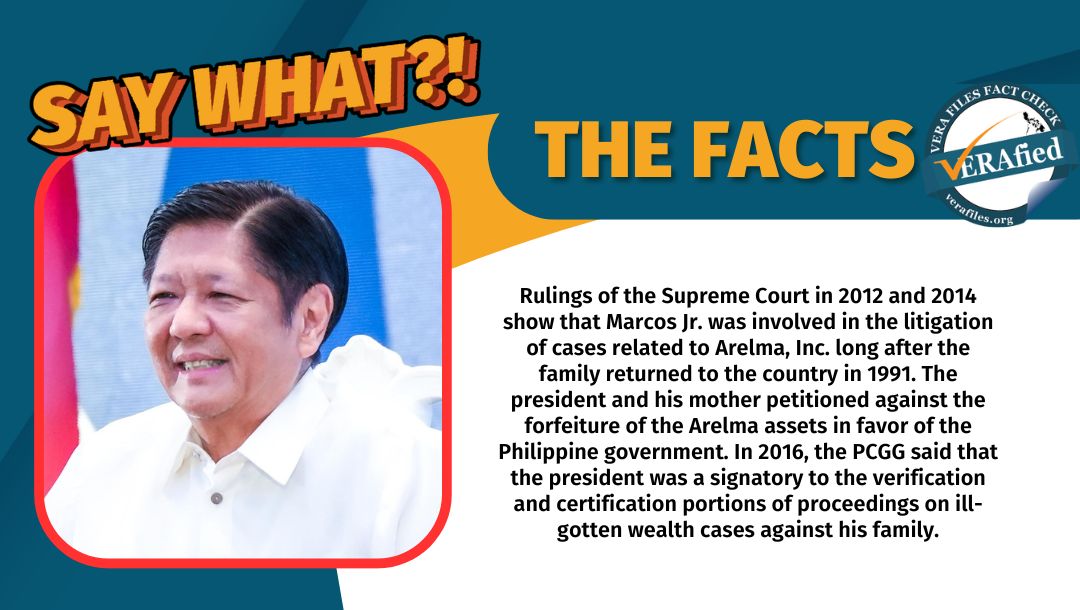 In two separate statements in 2016, the Presidential Commission on Good Government (PCGG) said that in a “litigation spanning more than 20 years,” Marcos Jr. “took the lead to prevent the early award of the Arelma funds to the Filipino people,” and that he was a signatory to the verification and certification portions to the proceedings on ill-gotten wealth cases against his family.
In two separate statements in 2016, the Presidential Commission on Good Government (PCGG) said that in a “litigation spanning more than 20 years,” Marcos Jr. “took the lead to prevent the early award of the Arelma funds to the Filipino people,” and that he was a signatory to the verification and certification portions to the proceedings on ill-gotten wealth cases against his family.
BACKSTORY
In 2014, the Supreme Court denied with finality the petitions of both Marcos Jr. and Imelda contesting the forfeiture of the Arelma assets, first ordered by the Sandiganbayan in 2009.
In 2012, the High Court affirmed the Sandiganbayan decision, saying that the Marcoses failed to raise a proper issue that would merit a review of the anti-graft court’s rulingpetition.
The magistrates pointed out that the petitioners have “again attempted to delay the goal of asset recovery by their evasiveness and the expedient profession of ignorance,” by citing their “lack of knowledge” on the allegations made by the Philippine government.
“An unexplained denial of information within the control of the pleader, or is readily accessible to him, is evasive and is insufficient to constitute an effective denial,” the decision read.

